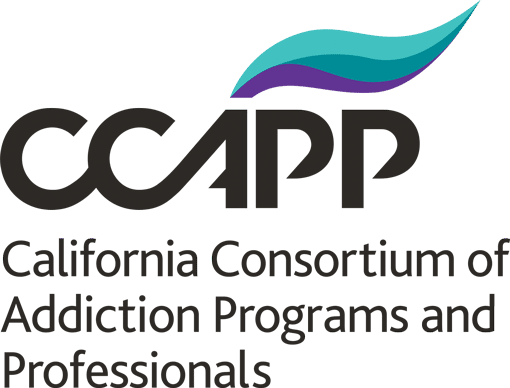
Addiction is a disease and one that is vastly complex due to all of the different facets that make it up. Affecting people worldwide, addiction is characterized by compulsive drug-seeking behavior despite the negative consequences that can arise from drug use.
Addiction can impact various aspects of an individual’s life, including their physical health, mental well-being, and relationships with loved ones. Because of this, finding the right treatment approach is critical to overcoming this condition and achieving long-term recovery. Luckily, many different options are available for treatment, and those needing it can find one that best fits their lifestyle and beliefs while still providing them the integral treatment they need and deserve.
Traditional addiction treatment methods often include cognitive-behavioral therapy, medication-assisted treatment, and group therapy. These approaches have been shown to be effective in treating addiction and are often the go-to options for many treatment centers. However, for individuals with strong Christian faith, traditional treatment may not fully align with their values and beliefs. This is where Christian-based recovery comes in as an alternative approach to addiction treatment.
Read on to learn more about Christian-based recovery and traditional treatment, how the two differ, and how Christian-based recovery can better serve as an approach to addiction treatment.
Traditional Treatment Methods
Traditional addiction treatment methods typically include cognitive-behavioral therapy, medication-assisted treatment, and group therapy. Let’s look a little more closely at each:
Cognitive-Behavioral Therapy (CBT)
Cognitive-behavioral therapy (CBT) is a type of psychotherapy that is commonly used to treat addiction. CBT helps individuals identify and change negative thoughts and behaviors that contribute to addiction. It is often used in combination with other therapies and medication-assisted treatment. This treatment can be effective in treating addiction, especially when used alongside other evidence-based therapies.
Medication-Assisted Treatment (MAT)
Medication-assisted treatment (MAT) combines medication and therapy to help individuals overcome addiction. MAT is often used to treat opioid addiction and involves the use of medications such as methadone, buprenorphine, and naltrexone. These medications help reduce withdrawal symptoms and cravings, allowing individuals to focus on their recovery. MAT can be effective in treating opioid addiction, but it is not a one-size-fits-all approach and may not work for everyone.
Group Therapy
Group therapy involves the participation of multiple individuals in therapy sessions. It is often used in addiction treatment to provide a supportive environment and encourage peer support. Group therapy can be effective in helping individuals feel less alone in their recovery journey and can provide a sense of accountability. However, group therapy may not work for everyone and may not address underlying issues that contribute to the addiction.
Strengths and Limitations of Traditional Approaches
Traditional addiction treatment methods are effective in treating addiction, but they also have limitations. One of the main strengths of traditional approaches is that they are evidence-based, meaning that they have been tested and proven effective in treating addiction. However, these approaches may not work for everyone and may not address underlying spiritual or religious issues that contribute to or worsen the addiction.
CBT, for example, focuses on changing negative thoughts and behaviors, but it may not address the root causes of the addiction, such as trauma or spiritual issues. Medication-assisted treatment can be effective in reducing withdrawal symptoms and cravings, but it may not address underlying issues that contribute to addiction. Group therapy can provide a supportive environment, but it may not address individual needs or be effective for those who prefer a more individualized approach to treatment.
The Strength of Christian-Based Recovery
Christian-based recovery is a type of addiction treatment that combines evidence-based therapies with Christian principles and values. This approach to addiction treatment can be beneficial for individuals who have a strong Christian faith and believe that spirituality is an essential part of their recovery journey. Christian-based recovery can also be helpful for individuals who have struggled with addiction for a long time and have not found success with traditional approaches.
These programs often include prayer, Bible study, and spiritual counseling. These exercises can foster a person’s relationship with God and deepen their understanding of their faith. Christian recovery also places a strong emphasis on forgiving others, which can be beneficial for people who are struggling with guilt or shame related to their addiction. Forgiveness can help individuals let go of past mistakes and focus on their recovery.
Barriers to Christian-Based Treatment
Lack of spiritual support is one thing that people with a strong Christian faith may encounter when seeking traditional addiction treatment. Traditional methods frequently ignore the spiritual aspect of recovery in favor of addressing the physical and psychological aspects of addiction. For individuals with a strong faith, this can mean that everything they learn during their recovery feels more hollow and less personalized, which makes it less effective in the long run.
There are also barriers to recovery for Christians from the community and upbringing itself, which can be directly addressed in Christian-based treatment:
- The belief that mental illness is a sign of weakness or sin: Many Christians may believe that mental illness is a sign of spiritual weakness or a lack of faith. Some may even believe that mental illness is a punishment from God for sinful behavior. These beliefs can cause individuals to feel ashamed and reluctant to seek help.
- The belief that prayer alone is enough: Some Christians may believe that prayer and faith alone can cure mental illness. They may view seeking medical or psychological help as a lack of faith or a sign that they are not fully relying on God. This belief can lead to resistance to treatment and a delay in seeking help.
- The stigma surrounding mental illness: There is still a lot of stigma surrounding mental illness, and some Christians may view mental health issues as a personal failing or a lack of faith. This can create feelings of shame and prevent individuals from seeking help or talking about their struggles with mental health.
- A lack of understanding from church communities: Church communities can be a valuable source of support and comfort, but they may not always have a thorough understanding of mental health issues. This lack of understanding can lead to unhelpful or harmful advice, such as recommending prayer as the only solution or suggesting that individuals simply “snap out of it.”
- A lack of access to mental health resources: Even if individuals with a strong Christian faith are open to seeking treatment, they may face barriers related to access to mental health resources. This can include a lack of insurance coverage for mental health services, limited availability of mental health professionals in their area, or financial barriers to accessing care
Principles of Christian-Based Recovery
Christian-based recovery is based on the belief that addiction is a disease that affects the whole person—mind, body, and spirit. As such, treatment involves addressing each of these aspects. The principles of Christian-based recovery are:
- Faith: Faith is a central component of Christian-based recovery. It involves putting one’s trust in God and relying on His strength and guidance to overcome addiction. This faith is not only a belief in a higher power but also a willingness to surrender to His will and trust that He will help in the healing process.
- Prayer: The power of prayer is a strong tool in Christian-based recovery. It involves talking to God, sharing one’s struggles, and seeking guidance and strength. Prayer helps individuals connect with God, find inner peace, and develop a closer relationship with Him.
- Forgiveness: Forgiveness is a fundamental principle of Christian-based recovery. It involves letting go of anger, resentment, and bitterness towards oneself and others. Forgiveness enables individuals to move forward with a clear conscience and begin the healing process.
Benefits of Christian-Based Recovery
Christian-based recovery offers numerous benefits to individuals seeking addiction treatment. Some of these benefits include the following:
- Community and Support: Christian-based recovery offers a sense of community and support that is essential in the recovery process. The faith-based approach provides individuals with a supportive community that shares their values and beliefs, creating a sense of belonging and connection. This community provides emotional support, encouragement, and accountability, helping individuals stay focused on their recovery goals.
- Focus on Healing the Whole Person: Christian-based recovery emphasizes healing the whole person, not just a portion of them. This approach recognizes that addiction is not just a physical problem but also a spiritual and emotional one. As such, treatment involves addressing each of these aspects, ensuring that individuals receive comprehensive care that addresses all aspects of their well-being.
- The Spiritual Foundation for Recovery: Christian-based recovery provides individuals with a spiritual foundation for recovery. It enables individuals to develop a closer relationship with God and find meaning and purpose in life. This spiritual foundation provides individuals with hope, strength, and guidance, helping them stay focused on their recovery goals.
Alignment with Biblical Principles and Values
Christian-based recovery aligns with biblical principles and values. It is predicated on the notion that addiction is a sin that keeps people from God and that healing necessitates a change of heart. The Bible teaches that we are all sinners and that through faith in Jesus Christ, we can be forgiven and restored to a good relationship with God.
Christian-based recovery recognizes the importance of confession and repentance. It encourages individuals to confess their sins and seek forgiveness from God and others. The Bible teaches that confession and repentance are essential for forgiveness and restoration.
Christian-based recovery also emphasizes the importance of community and fellowship. The Bible teaches that we are all members of the body of Christ and that we are called to support and encourage one another. Christian-based recovery gives people access to a community that is encouraging and shares their values and beliefs, enabling them to find support and inspiration on their road to recovery.
Finally, Christian-based recovery recognizes the importance of service and giving back. The Bible teaches that we are called to love our neighbors as ourselves and that serving others is an essential part of the Christian life. Christian-based recovery encourages individuals to give back to their communities and to use their experiences to help others who are struggling with addiction
The Differences between Christian-Based Recovery and Traditional Treatment
One of the key differences between traditional treatment and Christian-based recovery is the latter’s emphasis on spirituality and faith. Christian-based recovery programs believe that healing and recovery must involve a spiritual transformation. In order to connect people with God and strengthen their faith, these programs frequently include Bible study, prayer, and other religious activities. Christian-based recovery programs frequently include pastoral counseling or spiritual direction to assist people in resolving any underlying spiritual issues that might be causing their addiction.
The emphasis on spirituality and faith in Christian-based recovery can impact the effectiveness of treatment in several ways. For individuals who have a solid belief system, Christian-based recovery can provide a sense of comfort and support that may not be found in traditional treatment programs. This approach can also help individuals find meaning and purpose in their recovery journey. Additionally, Christian-based recovery can provide a sense of community and fellowship, as individuals in the program share a common faith and can support each other spiritually and emotionally.
Christian-based recovery can, therefore, better meet the needs of some individuals struggling with addiction. This approach to recovery can offer a sense of purpose and hope that may be missing from more conventional treatment plans. For individuals who feel lost or disconnected from their faith, Christian-based recovery can help them reconnect with God and find meaning and purpose in their lives.
At Christian’s Drug Rehab, we offer a faith-based addiction treatment program that can assist you and your loved ones in overcoming the devastating effects of addiction. Our Christian-based addiction treatment approach ensures that you discover a secure and enduring path to recovery. Reach out to us for additional details regarding our treatment options and take the first step towards obtaining the support you need today.












